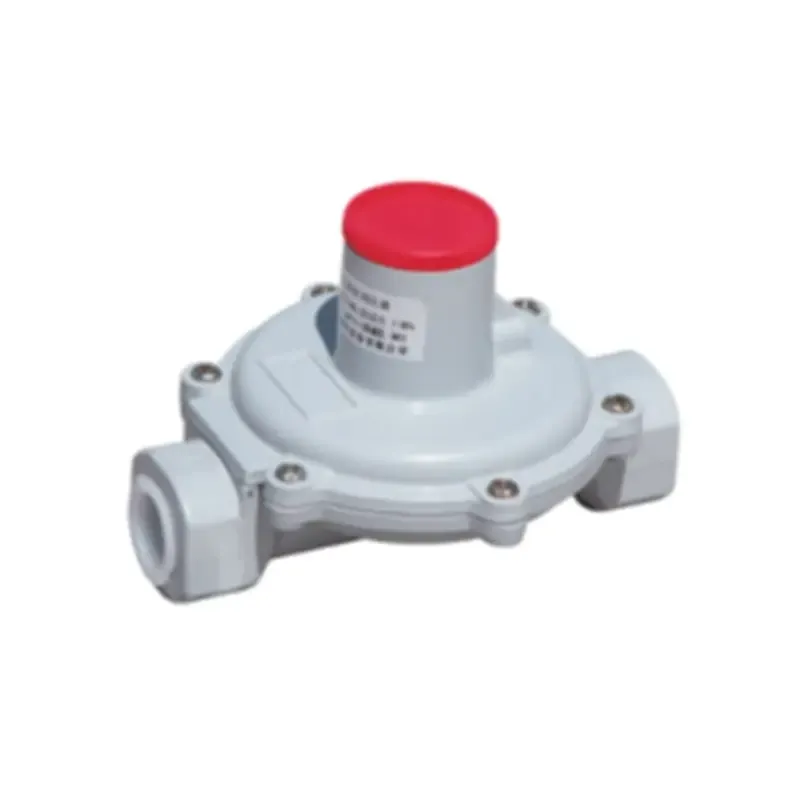
Aug . 14, 2024 06:12
Back to list
Exploring the Functions and Applications of Pneumatic Valves in Industrial Automation Systems
The Importance of Pneumatic Valves in Modern Industry
Pneumatic valves are essential components in various industrial applications, primarily involving the control of pressurized air or gas. These valves play a crucial role in the automation of processes across multiple sectors, including manufacturing, food processing, pharmaceuticals, and more. By regulating the flow and pressure of air, pneumatic valves contribute significantly to the efficiency and reliability of machinery and systems.
At the core of a pneumatic system, these valves act as the gatekeepers of compressed air. They can be found in various forms, including solenoid valves, manual valves, and actuated valves, each serving specific operational requirements. Solenoid valves, for example, use an electromagnetic coil to control the flow of air, providing rapid actuation and precise control ideal for automation processes. Manual valves, on the other hand, require human intervention for operation and are frequently used in applications where simple on/off control suffices.
One of the most significant advantages of pneumatic valves is their speed and efficiency. Compared to other types of valves, pneumatic valves can respond quickly to changes in system demands, making them suitable for operations that require high-speed actuations. This responsiveness is crucial in systems that rely on rapid motions, such as manufacturing assembly lines, where timing and precision are paramount.
Moreover, pneumatic valves contribute to energy efficiency in industrial settings
. By controlling and directing the flow of compressed air, they minimize leaks and wastage, ensuring that energy is used effectively. Through the strategic implementation of these valves, companies can significantly reduce operational costs associated with compressed air systems. This aspect is particularly important in industries where air is a critical resource, as effective management can lead to substantial savings and a smaller carbon footprint.pneumatic valve

In the food and beverage industry, pneumatic valves are indispensable for maintaining hygiene and safety standards. These valves can be designed with materials that comply with strict food safety regulations, ensuring that they do not contaminate products during processing. Additionally, their ability to automate processes reduces the risk of human error, which is vital in maintaining consistent product quality.
The pharmaceutical sector also benefits from the precise control offered by pneumatic valves. In drug manufacturing processes, where the slightest variation can affect product efficacy, these valves allow for accurate dosing and mixing of ingredients. Furthermore, pneumatic systems are less susceptible to contamination compared to electrical systems, making them an ideal choice for sterile environments.
While the advantages of pneumatic valves are clear, proper maintenance is crucial to ensure their longevity and optimal performance. Regular inspection, cleaning, and timely replacement of worn components help prevent costly downtimes and maintain efficient operations. It's also essential to select the right size and type of valve for a specific application, as this can significantly impact the overall performance of the pneumatic system.
In conclusion, pneumatic valves are integral to the functioning of various industries, enhancing efficiency, safety, and cost-effectiveness. As technology continues to evolve, innovations in pneumatic valve design and application are expected to emerge, further improving their capabilities and applications. Their ability to facilitate automation and streamline processes ensures that pneumatic valves will remain vital components in the industrial landscape for years to come.
Latest news
-
Safety Valve Spring-Loaded Design Overpressure ProtectionNewsJul.25,2025
-
Precision Voltage Regulator AC5 Accuracy Grade PerformanceNewsJul.25,2025
-
Natural Gas Pressure Regulating Skid Industrial Pipeline ApplicationsNewsJul.25,2025
-
Natural Gas Filter Stainless Steel Mesh Element DesignNewsJul.25,2025
-
Gas Pressure Regulator Valve Direct-Acting Spring-Loaded DesignNewsJul.25,2025
-
Decompression Equipment Multi-Stage Heat Exchange System DesignNewsJul.25,2025

